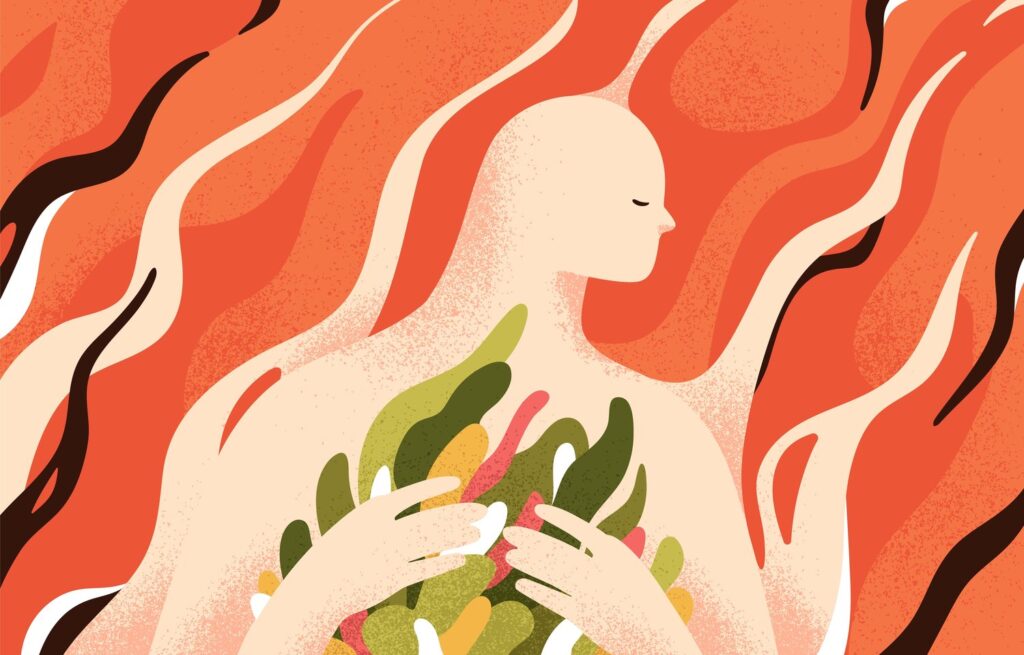
Body Trust brings into consideration liberatory frameworks for understanding disruptions in our ability to land safely in our present moment body. It instills compassion for disruptions in our ability to experience safety in our body, and helps us explore new ways of relating with ourselves and our bodies.
Body Trust means shifting from external messages about your weight, health and enoughness towards listening to and honoring the wisdom of your body. This approach is a radically different way of thinking about food, weight and health from the dominant weight-centric paradigm. However, a growing community of people of different body sizes, genders, abilities and ages are finding this framework a more realistic way of relating with themselves. Further, a growing number of professionals, including doctors, researchers, therapists, and dietitians, are advocating for this approach to living in a body.
Weight stigma and anti-fat bias have us all “hustling for worthiness,” but we are not all having the same experience. Virgie Tovar, plus-size Latina, author, lecturer, and leading expert on weight-based discrimination and body positivity, explains three dimensions of body injustice: intrapersonal, interpersonal and institutional. Intrapersonal body injustice refers to how you feel about your body. Interpersonal body injustice is how others feel about and treat your body. Institutional body injustice is how well you are allowed to maneuver society and systems, such as traveling, clothing, employment, medical care, buildings, etc., based on your body size. The people in the largest bodies experience the most discrimination, and therefore they are the most vulnerable. Centering the most marginalized and vulnerable people benefits everyone.

